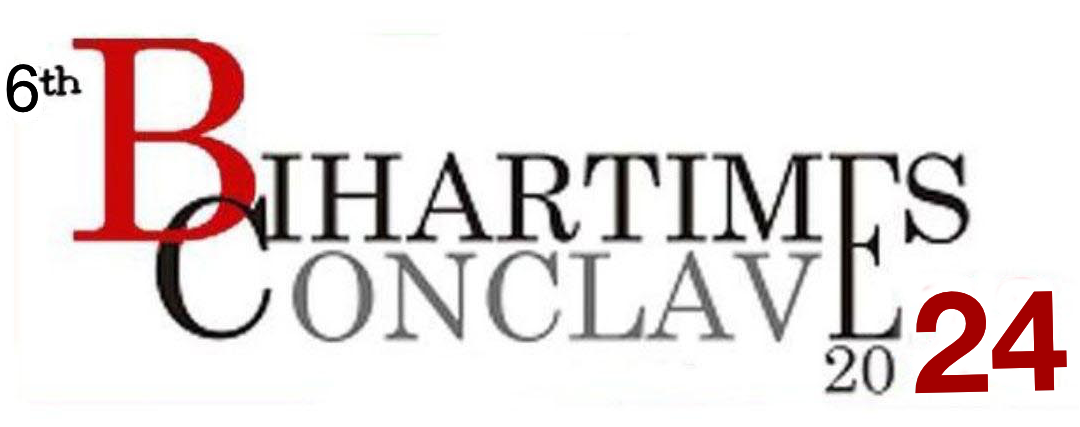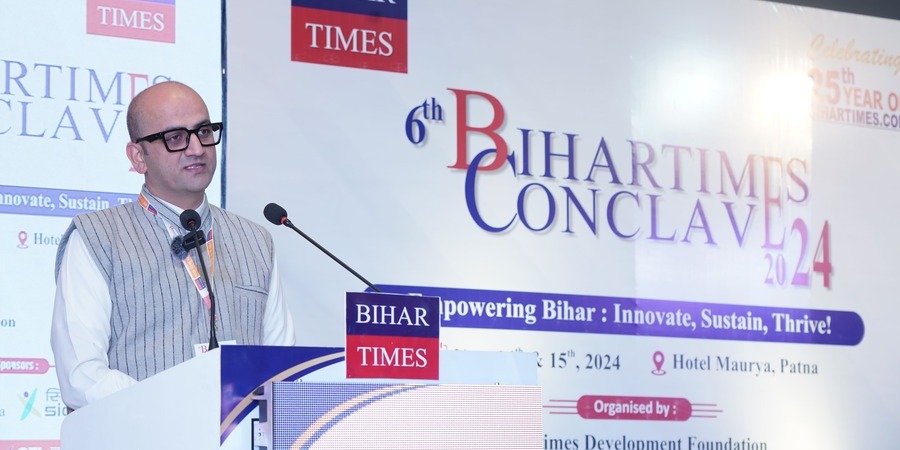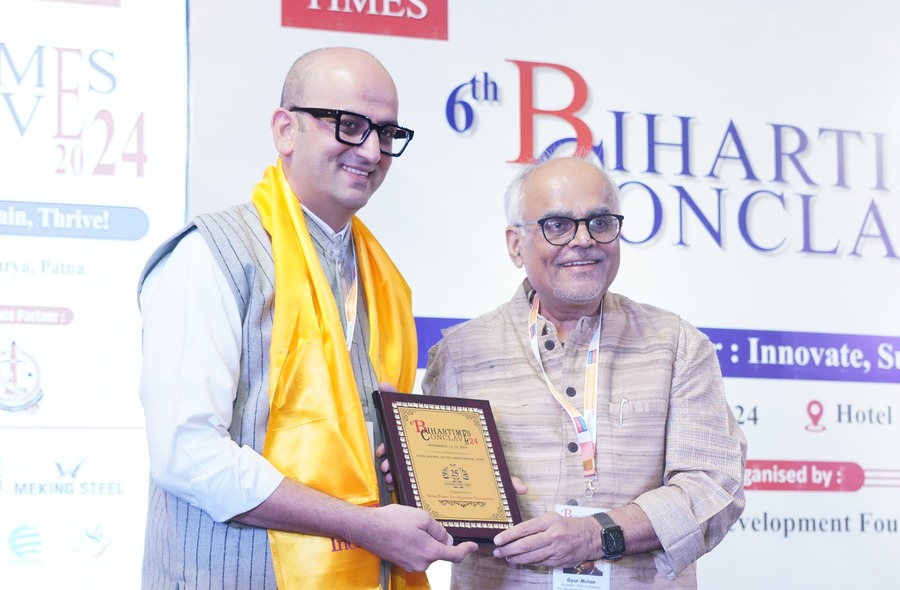|
21/11/2024 "Kautilyan Principles Still Relevant,
|
PATNA: Bihar should aim to be the engine of growth in India, with a growth rate at least double that of the national average, as it holds the rich legacy of Chanakya's Arthashastra. His ideas about good governance and balancing economic development with social justice are still relevant today. This observation was made by Pranav Patel, a passionate Leadership Developer and an expert of Kautilya's Arthashastra, the ancient Indian treatise on statecraft and economics, while speaking about the "Kautilyan Principles of Leadership & Strategic Thinking in Addressing Contemporary Challenges" at the 6th Bihar Times Conclave in Patna. He stressed that Chanakya's teachings on governance, economic management, and strategic thinking provide a solid foundation for harnessing the region's potential. By delving into these ancient principles, Bihar can unlock sustainable economic growth, promote innovation, and become a model for others to follow. Its ultimate success will depend on leveraging this heritage to drive modern economic policies and development. "Everyone here knows the history of Chanakya, who belonged to this land. But what did he say? We need to learn what he wanted to convey. We must explore the timeless principles of governance as outlined by the greatest ancient Indian philosopher, economist, and royal advisor, and their relevance in the modern world, to make Bihar great again," said Patel.
Addressing the audience, Patel said that the Kautilyan principles of leadership and strategic thinking are not just relics of the past; they are deeply relevant to the complex, fast-paced world we live in today. By embracing Kautilya's emphasis on visionary leadership, ethical governance, adaptability in strategy, and the integration of economics into statecraft, modern leaders can navigate the challenges of the 21st century with wisdom and foresight. "The wisdom of this ancient strategist, when applied thoughtfully to today's issues, offers an invaluable roadmap for successful leadership in an ever-changing world," he said. "At the core of Kautilya's leadership philosophy is the idea of a king, or head of the state, as not merely a ruler but as a custodian of the state's prosperity and security. Kautilya stresses that the leader must possess three key qualities -- Vision, Vigilance, and Ethics." Explaining, Patel said that the Kautilyan leader must have a clear vision of the state's future, guided by a long-term strategy. He must maintain constant awareness of both external and internal threats. This vigilance ensures that a leader can make informed decisions based on an understanding of the environment, from politics and economics to social dynamics. He also pointed out that while Kautilya is often associated with realpolitik and pragmatic strategies, his teachings on leadership also stress the importance of ethics. A leader must uphold justice, maintain discipline, and protect the welfare of their people. "Kautilya's Arthashastra is often described as a manual of governance and strategy, encompassing not just politics and war but also economics, diplomacy, and social organisation. For contemporary leaders, many of Kautilya's strategies still hold true in navigating today's globalised and interconnected world."
|



